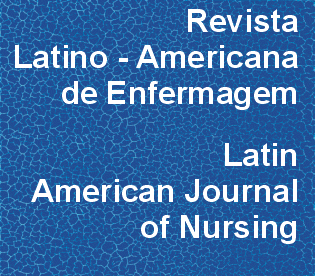Alternative/complementary therapies in public and private education: a knowledge analysis among nursing students
DOI:
https://doi.org/10.1590/S0104-11692003000400011Keywords:
alternative therapies, complementary therapies, nursing educationAbstract
This study aimed to analyze undergraduate Nursing students' knowledge in two education institutions, one public and one private, about alternative/complementary therapies, since both institutions offer a specific subject in this area under the optional and obligatory form, respectively. Data suggest that, apart from academic education, knowledge about this theme originates from common sense. The students recommend the use of alternative/complementary therapies although they do not use them much. Flower therapy, acupuncture, homeopathy, cromotherapy, fitotherapy, music therapy and massage are more utilized. The most neglected aspect in the teaching-learning process refers to the legal aspects of specialization in this area for the nurse.Downloads
Download data is not yet available.
Downloads
Published
2003-08-01
Issue
Section
Original Articles
License
RLAE’s authorship concept is based on the substantial contribution by each of the individuals listed as authors, mainly in terms of conceiving and planning the research project, collecting or analyzing and interpreting data, writing and critical review. Indication of authors’ names under the article title is limited to six. If more, authors are listed on the online submission form under Acknowledgements. The possibility of including more than six authors will only be examined on multicenter studies, considering the explanations presented by the authors.Including names of authors whose contribution does not fit into the above criteria cannot be justified. Those names can be included in the Acknowledgements section.
Authors are fully responsible for the concepts disseminated in their manuscripts, which do not necessarily reflect the editors’ and editorial board’s opinion.
How to Cite
Trovo, M. M., Silva, M. J. P. da, & Leão, E. R. (2003). Alternative/complementary therapies in public and private education: a knowledge analysis among nursing students. Revista Latino-Americana De Enfermagem, 11(4), 483-489. https://doi.org/10.1590/S0104-11692003000400011



